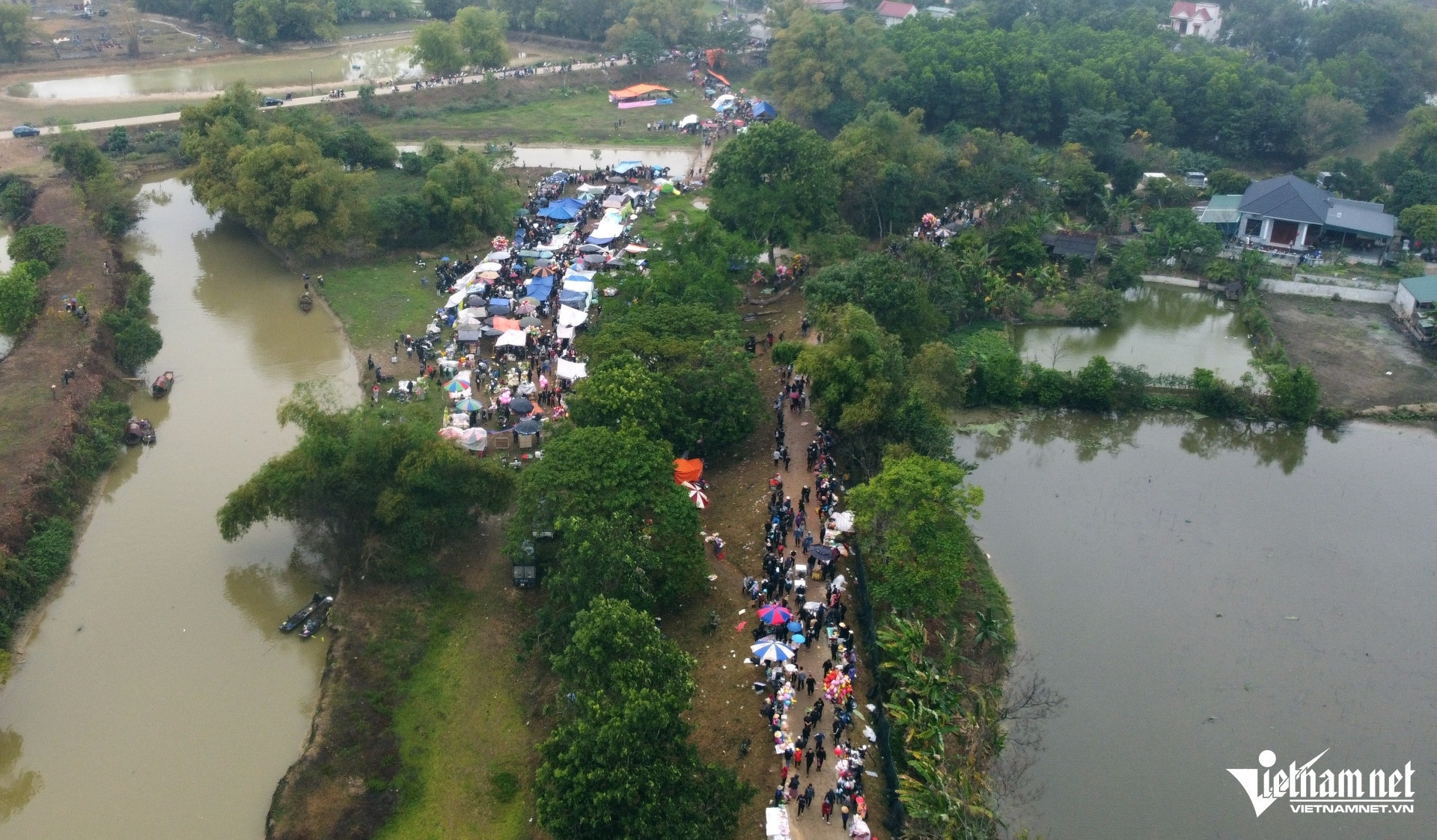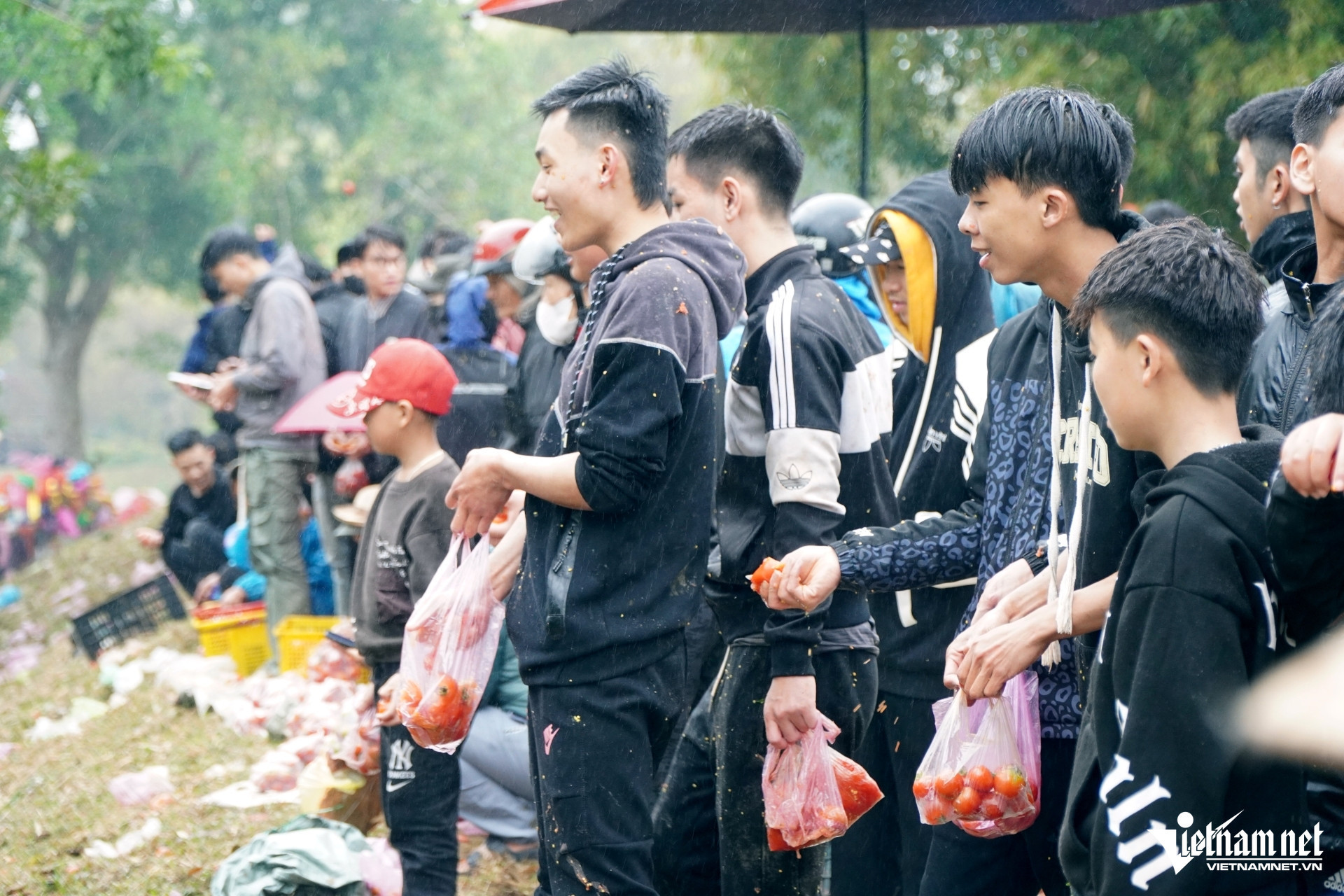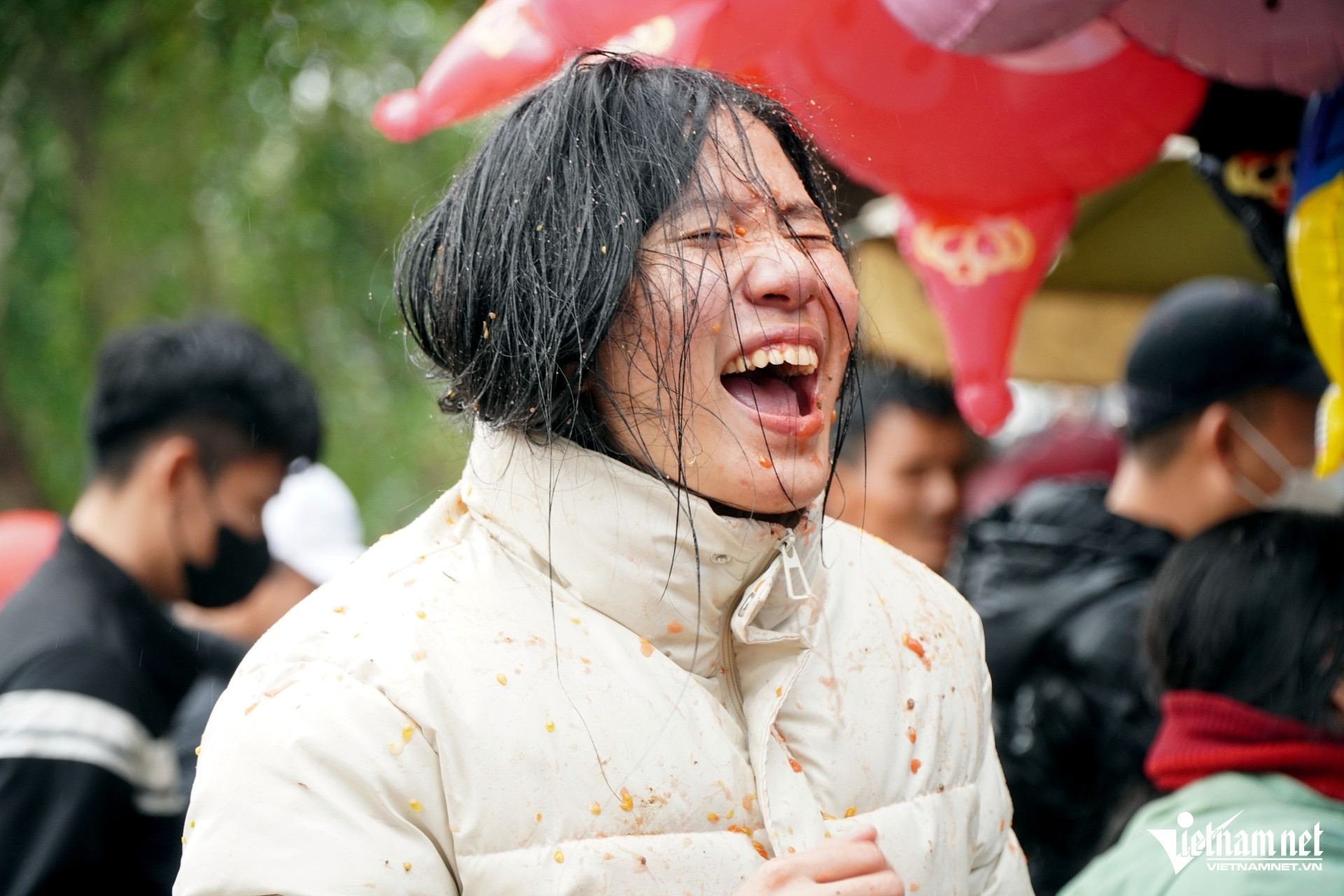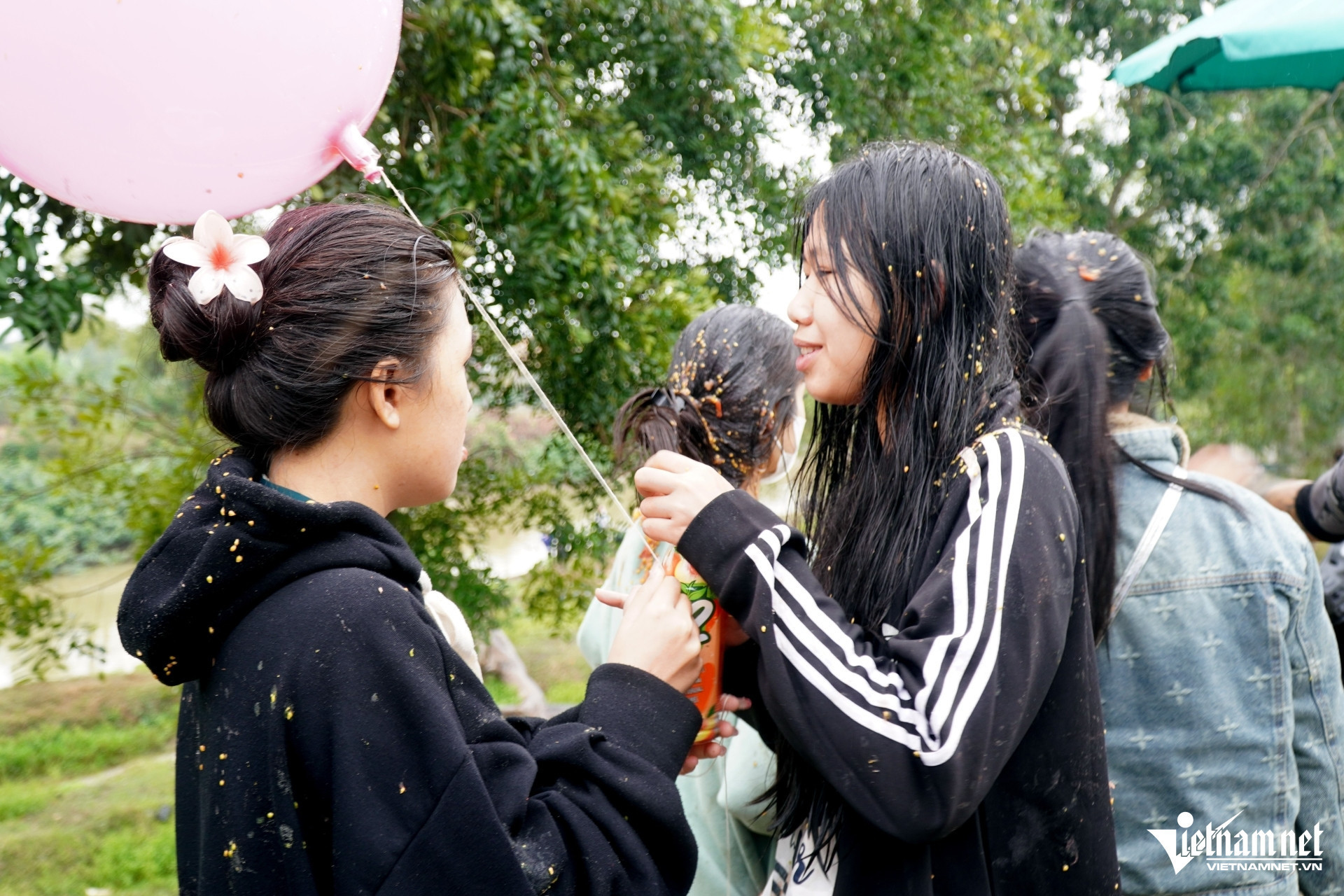
The People’s Committee of Dong Hoang Commune has submitted an official request to the Chairman of Thanh Hoa City to recognize the Chuong Market Festival - also known as the "fighting market" - as a national intangible cultural heritage.
This proposal follows a directive from the Secretary of Thanh Hoa City Party Committee on February 20, 2025, emphasizing the need to preserve and promote the festival’s cultural significance.
The Chuong Market Festival, also known as the "sixth-day market," is held only once a year, on the sixth day of the Lunar New Year, at the alluvial grounds along the Hoang River in Chuy Lac Giang village, Dong Hoang Commune.
To facilitate public access to the market, local authorities have set up a temporary bamboo bridge connecting Thanh Hoa City and Trieu Son District. From early morning, people of all ages gather along the riverbanks to take part in the festivities, which are believed to bring good fortune for the coming year. The market’s main goods include tomatoes, rice crackers, and chicken eggs.
A market where strangers throw tomatoes at each other for luck

The Chuong Market Festival is known for its playful tradition of participants - many of whom are strangers - hurling tomatoes and eggs at one another. Despite being covered in red splatters, everyone smiles, as local belief holds that the more a person is hit, the luckier their year will be.
According to village elders, the festival dates back to the Le Dynasty. Legend has it that on the sixth day of the Lunar New Year, a general, while fleeing from enemy forces, ordered his soldiers and local villagers to stage a market gathering. When the enemy arrived, they mistook the scene for an ordinary marketplace and let down their guard. At the right moment, the general launched a surprise attack, leading to a decisive victory.
To honor this clever military tactic and the general’s triumph, the local community has continued the tradition of the annual market gathering, which has since evolved into a festive cultural event.
Seeking recognition as a national intangible cultural heritage


To preserve and promote this unique tradition while meeting the spiritual and cultural needs of the local community, the Dong Hoang Commune People’s Committee has formally requested that the festival be listed as a national intangible cultural heritage. The request urges cultural authorities to evaluate the festival’s significance and prepare documentation for official recognition.
If approved, the festival would receive enhanced protection and support, ensuring its continuation for future generations while attracting more cultural tourism to Thanh Hoa.
Le Duong